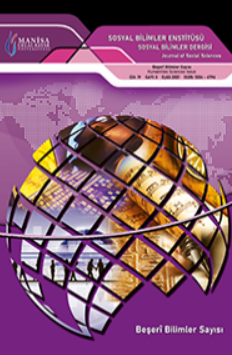İşlevsel Halk Bilimi Kuramı Bağlamında İzmir Aliağa Yöresi Karaköy Köyü Mânileri
The Turkish Poems of Karaköy Village, Aliağa, İzmir in the Context of Functional Folklore Theories
Author(s): Necati ÖzcanSubject(s): Cultural history, Customs / Folklore, Poetry, Oral history
Published by: Celal Bayar Üniversitesi Sosyal Bilimler Enstitüsü
Keywords: Aliağa; Karaköy; mâni; function;
Summary/Abstract: Functional folklore theory, which is one of the context-centred folklore theories, investigates and examines folk creations in terms of performance or context. According to the functional approach, every performance, discourse or listening has a reason in the context in which it occurs. It is important to understand the role of folklore in human life. Turkısh poems, which have a widespread and important place in the oral culture region, is a living folk literature type that includes folklife. They have many functions such as expressing feelings, thoughts and dreams in the community’s life, being educational, providing socialization, supporting the institutions of the society, and transferring the culture to generations. In this study, the data was gathered by means of the interview method, which is one of the qualitative research methods, by doing zone research in Karaköy village, in Aliağa, İzmir. The compiled Turkish traditional folk poems (mâni) were evaluated within the framework of functional folklore theory of context-centred folklore theories and exemplified according to the functions of folklore elements of William R. Bascom.
Journal: Celal Bayar Üniversitesi Sosyal Bilimler Dergisi
- Issue Year: 19/2021
- Issue No: 03
- Page Range: 207-219
- Page Count: 13
- Language: Turkish

